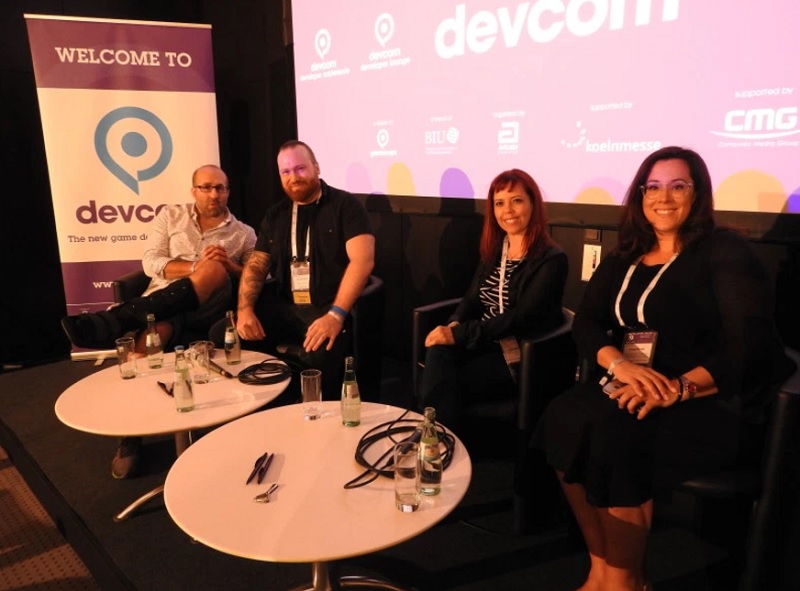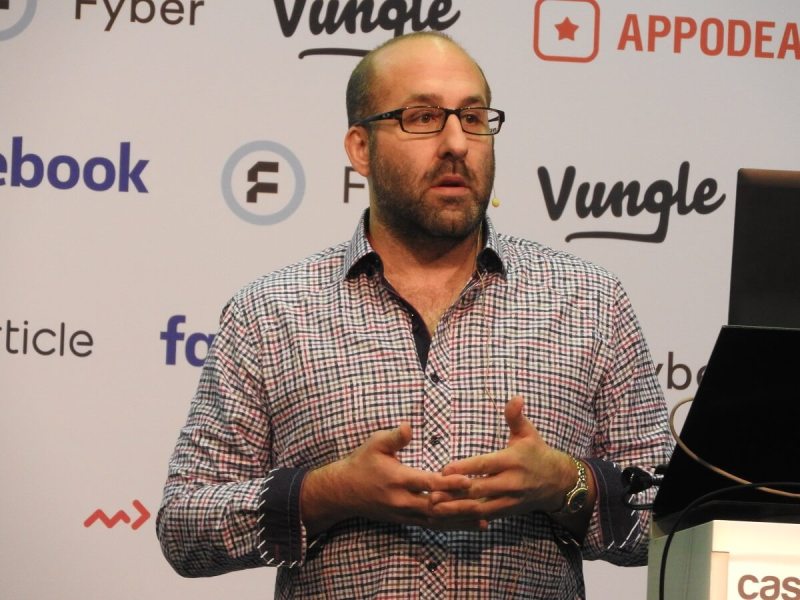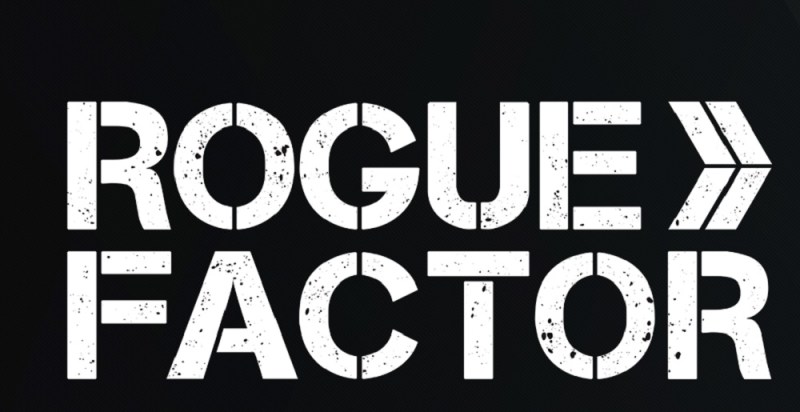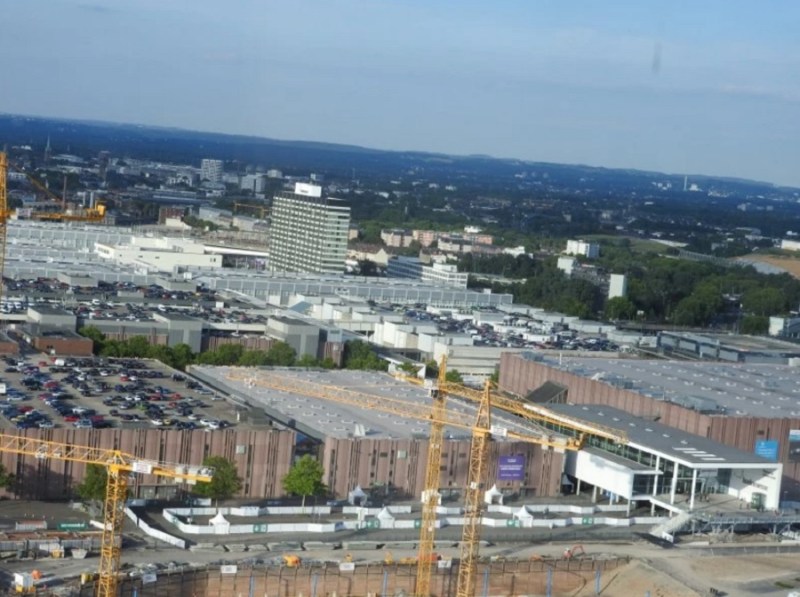Canada has hit its stride in video games, with more than 20,400 direct and an additional 16,000 indirect jobs in the game industry. It has 472 companies, including hundreds of independent game studios. And as the U.S. cracks down on its immigration policies, our neighbor to the north is taking the opposite strategy, opening up its borders and using immigrants to fill vacant game job openings.
I moderated a panel about making games in Canada at the Devcom event in Cologne, Germany, just before the Gamescom fan event. Canada took dozens of its game studios to the event and helped them display their games to the Gamescom crowd, which numbered in the hundreds of thousands. But deciding to invest government money in game startups isn’t an easy decision. It means that the government gets involved in picking winners and losers, and it has to deal with the consequences of that.
Our panel included Tanya Woods, general counsel and vice president of policy for the Entertainment Software Association of Canada; Kim Gibson, head of the Interactive Digital Media Fund for the Ontario Media Development Corp.; Yves Bordelau, general manager of Montreal game studio Rogue Factor; and Jason Della Rocca, cofounder of Execution Labs.
Here’s an edited transcript of our panel.

Above: Canada panel at Devcom:
GamesBeat: Why don’t we start with an overview of making games in Canada? Jason, what are some things that people here should know about making games in Canada?
Della Rocca: We make games in Canada the same way everyone else makes games. It’s not like we fuel our game engines with maple syrup. What’s interesting is that Canada, despite having a relatively small population, has a very robust, very large game development industry. We’re at about, what’s the headcount, 36,000? The population of Canada is about 35 million people and we have 36,000 workers in the industry, which is roughly on par with California, the number one game development center in the world.
We’re fourth in the world from a production point of view. There’s an interesting mix of startups and indie studios, as well as very large foreign-owned studios, big development campuses run by companies like Ubisoft and Electronic Arts. It’s a very dynamic, very diverse industry. It runs the gamut across all types of games, platforms, and genres. There’s a lot of stuff to get into.
Bordelau: From a developer perspective—talking about the indie scene, we’ve been booming in the last few years. When I started my first indie studio in 2002, I was pretty much alone in Montreal. We had maybe two or three indie studios. Now we have more than 100 in Quebec alone. It’s exciting to see. It’s dynamic, always changing. A lot of people from the triple-A industry, from Ubisoft or Warner, are starting their own studios, because they want to do their own thing and enjoy the flexibility of ownership. I’ve seen that growing over the last few years.
Gibson: From what I hear, traveling around in my work with the industry, one thing that’s unique in Canada is there’s a very strong, active level of support, a strong history of support for the industry, both on a regional and a national basis. Each region has its own tax credit regimes, and there are national funding programs available to local developers, in addition to a number of different regional programs. That’s been a boon to the industry in Canada. It’s really helped with local developers, who now have access to capital to create products. That’s helped grow the industry in the last couple of years.
Woods: We have a prime minister who shows up at studios and actually takes part in learning to use the equipment. His main ministers come into the studios to learn how it all works. They don’t have that natural inhibition that we sometimes see in politicians. It’s important, when we look ahead at a global, digital economy—the games industry is very much a part of that. You need this kind of leadership, and we have it. They’re coming out in a big way. We can ask for almost anything and get a version of it right away, and we work toward getting more.
We’ve come from tax credits being the signature part of why Canada is such a great place to make games. We also have incredible talent. But if we’re going to grow and keep growing, we need to have leadership that takes us to the next level, and we’re absolutely seeing that now.

Above: Jason Della Rocca is cofounder of Execution Labs in Montreal.
GamesBeat: If we look back on some history, how did Canada get its literacy in games? How much do you think government assistance matters? I’ve traveled around the world, and in California it seems like they do almost anything they can to drive businesses out. But people stick around. Between Silicon Valley and Hollywood, you have a lot of natural creation of game companies that takes place. The government generally doesn’t do anything to help that process.
Woods: The financial infrastructure and supports in Canada are diverse. Not every part of it can be or is used by everyone. Multinationals versus independents, there are different controls—it’s a complex discussion.
But really, I remember when I first started in the industry. I’m a lawyer, so I wanted to know the facts about everything. The story that was told to me began with some bubbling around about three decades ago. [Former EA executive ] Don Mattrick was credited as one of the people who really kicked it off in Canada. He sold his studio to EA, and that was the big shift we needed to get into the games business.
Our industry grows in two ways, kind of. You have a big company and people get the training as they go, on the job. They realize this is fun, just like everywhere else, and they go and spin out their own studios. We’ve seen that. We have 20-some large multinational publishers now, but we have more than 450 small independents. Part of the story is starting big and then growing, but what we’re also seeing is people going into big studios, and then spinning out more innovative companies. They’re not just spinning out entertainment companies. We have a company called Finger Food in B.C. doing model designs for Mack trucks using VR technology, and they came from games. Stuart Butterfield, the founder of Flickr and Slack, was in the games business before he was able to launch those two big companies.
That’s the trend we’re starting to see more of, because we’ve built up the provincial supports over time. The provinces have come on board. Even as recently as three years ago we had another province come on board with tax credits. That’s a cyclical trend we have to take of. But federally, when you’re growing like we have over the course of time—it’s been slow growth for some time, but now we’re seeing demand appear and we’re trying to feed the pipelines. We’re looking at skills. How do we get every person in Canada who wants to do games an opportunity to learn that?
Della Rocca: It’s a good point about Don. I’m in Vancouver, where a lot of the industry started about three decades ago. There was also some activity in Quebec in the ‘80s – not anything memorable, but there were people making games. Something that’s important to understand is that particularly in Montreal, there was a long history of aerospace, visual simulation, and VFX work being done. Softimage and some of the earliest tools ever used in Hollywood special effects and CGI were developed in and around Montreal. There was talent. There was technical and artistic talent, plus a lot of universities. It was rich soil to plant an industry. The other big catalyst was Ubisoft coming to Montreal in 1996 and 1997 or so. That’s where the tax breaks started to snowball.
Often, when we travel the world, the story about here is, “Oh, the government put tax breaks in and then boom, here came this amazing industry.” Some of the consulting work I do is with governments around the world, who call me up and ask me, “Hey, tell me how to do these tax breaks so we can get a game industry in our country.” And I say, “Hold on a second. That comes later. The groundwork needs to come first.” There’s a bit more nuance and a longer history before the tax breaks come into play.

Above: Yves Bordelau, general manager of Montreal game studio Rogue Factor.
Bordelau: On the indie side, it was in 2001 or 2002 when what we now call Canada Media Fund got started, the experimental fund. The early 2000s. This gave indies tremendous help. When you’re just out of Ubisoft, for instance, and you start your own studio, you don’t have any credibility with publishers. But with the CMF back in the day, they helped some of the first indie studios ship their first titles. That was key to building what are now well-established studios in Montreal. It’s been interesting to see how that push forward began the progression.
GamesBeat: How is Canada at pulling jobs in from certain directions? I know with Ubisoft in France and Ubisoft Montreal, there’s a strong relationship there. Lots of jobs built up within that one company across the two countries. Where else do you see that happen? There’s obviously the U.S.
Woods: We have a pretty aggressive talent attraction strategy now. This is part of how the leaders in the country have decided that we want to open our doors – “This is the kind of talent we want to have.” A new immigration program that launched earlier this year and the first applicants have been coming in. It’s a lot easier, which is great. We’re growing, and we don’t have enough people in Canada to meet demand.
There have been programs like inter-company transfers. For example, if you’re at Ubisoft in France, you can come to Canada after a certain amount of time and work in the Ubisoft office there. That doesn’t take very long. The harder part is getting talent to come in to Canada and knowledge-share with Canadians on the teams, global talent. We’re constantly competing to get the best and the brightest people from around the world.
We do attract some people from the U.S., but it’s not mostly Americans that we attract. It’s mostly Europeans, but we’re not picky. If you’re awesome, you can come here. That’s pretty much how it goes.
GamesBeat: One number I’ve found is that the cost per employee in Canada is about 25 percent of what it is in the United States, if you factor in tax breaks and the exchange rate. What is the cost trend like for you here?
Della Rocca: Obviously we’re closely linked to the exchange rate between the Canadian and U.S. dollar. That has an effect on the economics of things. There’s the effect of tax breaks – in the province of Quebec it’s 37.5 percent, so if you’re paying an engineer $100,000 Canadian, at the end of the year you get $37,500 back from the government.
Something we’re starting to see, as has been said here–there is competition for talent, particularly experienced talent. There is, to some extent, an inflation of salaries happening, which is a natural supply-demand effect that happens everywhere in the world. A lower Canadian dollar and tax breaks does help alleviate some of that pressure, but particularly in hubs like Vancouver and Montreal there’s a high degree of competition for senior talent. Overall, the cost of doing business in a given city, though—I don’t have specific indexes in my head, but overall Canada is a relatively inexpensive place to do business in general.
Woods: Not considering the companies costs, but just considering the cost of living for people coming in, because this is really important as well—living in Canada is relatively affordable, with the exception of Vancouver. Everywhere else is pretty affordable. There’s good health care, free schooling. The cost of living and the quality of life is very enticing for people coming from elsewhere.

Above: Montreal
GamesBeat: I looked at a survey that a recruiting site, Indeed.com, did earlier this year. They organized all the jobs posted for the games industry by location. One interesting feature was that the U.S. had seen a 65 percent drop for game job postings since 2014. The countries with the highest number of open jobs were South Korea, Spain, and Canada. I believe Canada was number two. Clearly it seems like there are cycles happening here. The U.S. isn’t necessarily guaranteed to dominate this industry. Mobile games, in particular, seem like they can be made anywhere in the world. It’s not an industry that’s planted in one place, like Hollywood.
Woods: We put out a report last year for the government, talking about 182,000 job vacancies in the NCT sector. That’s a lot of jobs. These are for skilled people. Games, as entertainment, would fall squarely in that. But if we go back to something I said earlier, our industries, across sectors, are looking for games people. We’re competing with aerospace, with health, with shipping, with everybody else to get these people. When we count jobs—our government has said that we’re all-in on the digital economy. We have a massive need and we’re not able to fill demand.
That adds some nuance to the way we look at games in Canada, but I think it will spur a higher level of demand. Every industry is thinking, “We need better UX and UI. We need to better engage our consumers digitally. We need to use AI and robotics. We need more simulators for advanced aerospace. The games guys know what that’s all about.” Canada is a hub for all of these things, so it’s quite interesting to see that trend grow.
Bordelau: Another influence is from the VFX industry. Talking about Montreal, companies like Framestore have been hiring like crazy. They’ve been starting a big storm, so to speak, in terms of HR needs. When they came in, as far as looking for specific talent, everyone from the artistic side to the technical side—games and VFX are very close. We share the same pool of people. That’s created a lot more opportunities for people, and it increases the need for us to hire from abroad, especially senior people. Montreal alone hasn’t been able sustain all those companies coming in over the last five years. It’s just crazy. In the long run it’ll be good, but in the short run we need help.
Della Rocca: From a structural point of view—I’m not surprised by that statistic. There’s a kind of self-perpetuating momentum that happens, both in companies as well as on an individual basis. One company shows up and starts to do well. Another company says, “Things are doing well there, so I’ll go there too.” Then the next company comes in. Suddenly the individual says, “Sure, I’ll go there, I can work for three different companies.” The more talent there is, the more companies come in, and then the talent has it even better, because they have more options and competition for their services. There’s this flywheel effect. Once it launches it just keeps going.
Gibson: It’s a chicken and an egg, and the egg and the chicken just keep getting bigger.
Della Rocca: Right. In Canada we have that effect, especially with three main hubs in Montreal, Toronto, and Vancouver. It perpetuates itself on both a company basis as well as the thinking of the individual worker going to a particular city.

Above: Canada’s flag
GamesBeat: If you’re in the government here, or running an incubator, how concerned are you with booms and busts within the different segments? The Indeed.com report noted that the U.S. is particularly strong when it comes to creating VR jobs. Those jobs concentrated in Seattle, San Francisco, and Los Angeles. Now we’re headed into some kind of VR bust. It’s taking longer to take off than many people expected, and a lot of startups that got funded early probably are going to run out of money. It’s a natural flow in the industry, but it’s not great for the U.S. right now. How much does the government need to be concerned about that cycle of booms and busts, and these categories of what’s hot, like esports and VR?
Della Rocca: I think it’s not the government’s job to pick winners. They build generic systems and programs that don’t necessarily determine who’s going to succeed in the end. What’s interesting about Canada is that it’s a very diverse ecosystem. It’s not like everyone’s doing VR or everyone’s doing Xbox. It runs the whole spectrum. If the VR folks in this part of the country do poorly, well, the mobile folks are still doing well. If the mobile folks aren’t doing well, the console guys still are.
On the whole, in the global industry, things are going up, even if particular segments or particular platforms may be struggling at any given time. Because of the critical mass, if some studios in VR hit a wall or run out of funding, chances are they’ll get jobs or an opportunity to start up other companies doing other things that have the potential to do better.
Gibson: As someone who works for the government, it’s right to say that the government sets up structures, puts those structures in place. We are ultimately responsible for the decisions that are made around our fund. But we use experts to help us make our decisions. We have an industry jury that comes in and helps us.
VR is an interesting case. I feel somewhat vindicated to hear that a bust is coming, because I’ve been saying that since the very beginning. We proceed with caution. The mandate of the agency I work for is unlike other agency’s mandates, where they may have a cultural mandate or an innovation mandate. Our mandate is economic. Our goal is to grow companies. For that reason, we take a very balanced approach when we’re making funding decisions.
We do love to see that we have a couple of really good VR projects. We have good console and PC stuff. We have mobile stuff. That helps mitigate some risk. But we’ve seen these trends come and go over time. The whole Ontario industry — I’m in a privileged position, because I get to watch this – ran headfirst into mobile free-to-play. Guess how many people are in that business now? Very few. Now they’ve all moved into console and PC. I don’t know where they’ll end up next. So we do see things like that happen. We’re aware of them. We monitor and advise as we need to.

Above: Canada brought 21 game startups to Gamescom 2017 in Germany.
Della Rocca: But also, that’s not a specifically Canadian phenomenon.
Gibson: No, it’s not.
Della Rocca: From a Canadian perspective, I think the interesting thing is the robustness of the ecosystem, such that if a bunch of companies do fall off a cliff in free-to-play or whatever, there are other things for them to do.
Gibson: Exactly. Having the support from government is helpful, because—we don’t give money away with no obligations. It’s matched money. We’re basically sharing in the risk, but in doing that, we hope to offset some of the risk for companies so they can make inroads in things like VR or explore new business opportunities in mobile. We’re there to help them with that risk, and we take smart risks.
Woods: I would say, though, that government does pick winners. Whether we want that to be the case or not–particularly in the case of the national government—provinces are one thing. The provinces also pick winners. If you look around more broadly, in an area like Vancouver we’re all in on tech. They want to attract those big anchor companies. They want to say, “We’re going to move mountains to have Microsoft’s head office here.” They have EA there. As a province they’re all in on tech and they’re picking their winners.
We don’t have a robust investment plan like what exists in Silicon Valley. Silicon Valley feels like a global anomaly. But our government is aggressively exploring how to do this now. They see a huge opportunity, and we’ve decided as a country to be all in on tech. We want to see it grow. In fact, they were so all in that they committed, essentially, a billion dollars—they created a fund last March, the Supercluster fund, and in short, five industries are their chosen winners. They want to see platforms evolve. They want to see industries like AI succeed. Canada has made a statement out loud saying, “We want to be the best in the world at AI. We want to be the best at AR and VR. Whatever these platform technologies are, we want them here.”
The long story short is, the government definitely picks its pet industries and goes all in on them. Right now, games is in there. The value of games and the industry’s multi-sectorial value is understood. They’ve set up literally billions of dollars in the last budget from March for everything we’re asking for. I think they are picking us as a winner, and that works to our advantage.

Above: 38 Studios’ cancelled massively multiplayer online game.
GamesBeat: There are challenges in picking winners, in that you necessarily pick losers as well. The U.S. is a great example, again. Curt Schilling’s MMO company, 38 Studios, attracted millions of dollars in subsidies from the state of Rhode Island, a very small state, and of course they lost a lot of money. That suggests there can be a down side. How do you avoid that kind of problem?
Woods: You have to take risks to grow. We’re evolving into what’s being called the fourth industrial revolution. That’s very much marked by advanced technologies, their role in traditional sectors, and the creation of new sectors and new types of jobs. If you look at tech talk globally, we’re in a risky moment in time, because we’re doing so many new things. We’re using some things we’ve known about for a long time – AI isn’t necessarily new – but it’s new to a lot of people. We were early adopters and now it’s pushing to center stage.
We’re the ones that have to experiment, which is a risky business, but if governments don’t take risks, they run the risk of becoming obsolete. Countries like Canada and the U.S. can’t afford that.
Della Rocca: I was actually on the due diligence team for the 38 Studios deal. I tried to advise them not to do that deal, and they ignored that due diligence. That was a super interesting process that, unfortunately, I’m mostly not allowed to talk about.
Their problem was they wanted a quick solution to all of a sudden have a game industry in their state, because having a robust game industry with highly paid knowledge workers seems like a good thing to have in your region. They wanted to solve that by bringing in a superstar startup and all this other stuff. A big part of our advice was that that would not solve their problem and would not build a sustainable business. We had a whole bunch of other recommendations in terms of supporting startups and funding new IP and implementing incubators, and the reaction was, “No, that’s real work. We don’t have time for that. We’re just going to bring in Curt Schilling.”
Tanya, I think when you talked about winners, you meant the whole industry, rather than project to project or company to company. Canada, at a federal level, has listed games as a priority sector. In fact, I served on the advisory board of the office for foreign affairs and international trade as the game industry representative. At the province level there’s also a high degree of priority for the sector.
What I meant more so is, on an individual basis, the programs that are set up, the tax break schemes, the funding schemes, they’re not trying to find the next Curt Schilling to spend $75 million on a one-shot deal. It’s more of a robust systems that takes some risks, takes some bets, tries to be smart about it and spread the money across X number of deals.

Above: Canada’s booth at Gamescom 2017.
GamesBeat: Talking about the up side, Supercell received a few million euros from the Finnish government, and now pays back in taxes about 300 million euros a year. It’ll be interesting to see how long Finland’s boom lasts. What seems to be a hallmark for which regions stay strong in the game industry is whether you can sustain a multi-generational franchise in your country. Kyoto, Japan will always be a center of the game industry because Nintendo is there. If you look at where Grand Theft Auto was created in Scotland, that region is very strong.
Woods: Likewise EA, with FIFA. We produce some of their best games in Canada. Ubisoft as well, with Assassin’s Creed and a number of other franchises. We could probably go across the country and find—if it isn’t the big sequels, it’s still the studios that consistently put out hits. You look at a studio like Other Ocean, Andrew Ayre, he’s been doing games pretty much since the beginning, and he’s committed to keeping his business in Canada.
It’s technology. As Jason and Kim were saying, you have to have a base. You have to put a good foundation down. That means you need the government as a business partner, to champion you and to understand what you’re doing. You need that not in one department, but across every department. You need educators who want to teach STEAM skills. As an industry association—I go to government, to politicians, and ask them, “Do you understand games? Do you know what you’re doing? Do you see how you can help us and know why you should?” These are high-paying jobs, jobs that are very versatile across sectors.
That’s a lot of groundwork, but that’s the role we play. It’s being present when they say, “We want to see this now. We want to try this now.”
GamesBeat: Decision-making is always important. With Canada you have decision-making in Paris relative to Ubisoft games made in Canada. EA’s decisions are often made in Redwood City, California. There’s always another stepping stone for a country to get to. I feel like Canada still has some stepping stones to reach in the evolution of its game industry. It’s moving up the chain very dramatically, but it’s not at the top yet.
Bordelau: We’re still a young industry, when you look at it from a broad perspective. You’re right about Ubisoft, for instance. In Montreal we are making some of the company’s best IP, like Assassin’s Creed, but every major decision goes up to editorial in Paris. We still need some time to grow ourselves as studios. It’s the same with EA. They’re investing a lot in Motive right now. They even merged BioWare Montreal with EA Motive to make it bigger and sustain bigger productions. It’s just a matter of time where we have the full freedom, but we’re still taking steps.
Della Rocca: I don’t think those studios will ever have complete freedom, though. They’ll always be part of multinationals with the head office somewhere else. They create amazing IP. Their talent is wonderful. They generate huge award-winning franchises. But this speaks to—one of the challenges in Canada is this balance between the multinationals versus the independents, the locally-owned studios.
Historically, a lot of the support from the government has been steered more toward – at least in Quebec – bringing in multinational companies as a basis to create high-paying jobs. Now, as has been mentioned a few times, there’s not exactly a shift, but there is more activity happening on the independent side, in part because of things like the CMF that makes them a viable and robust environment for either people leaving triple-A to start studios, as is happening in some cases, and also people who are trying to go straight into independents, like the example of 13AM and Runbow.
That’s where some of the challenges remain in terms of the appropriateness of different funding schemes and tax regimes and policies and talent pipelines. Are they serving both sides of the ecosystem, or only one? That’s almost a whole other discussion. But even going back a few years ago, the scene really was dominated by the multinationals. Probably 10 years ago, I remember saying that despite all the success in Canada, the presence of those big studios was a precarious situation, because we didn’t have a more robust, more dynamic ecosystem around them. I was quite worried that all of a sudden, if things shifted, the multinationals would leave town and we’d be left with nothing.
Over the past 10 years we have seen the continued growth and success of the multinationals, but also the emergence of the independents. That helps create a much more strong and versatile ecosystem.
Disclosure: The organizers of Devcom paid my way to Cologne. Our coverage remains objective.

